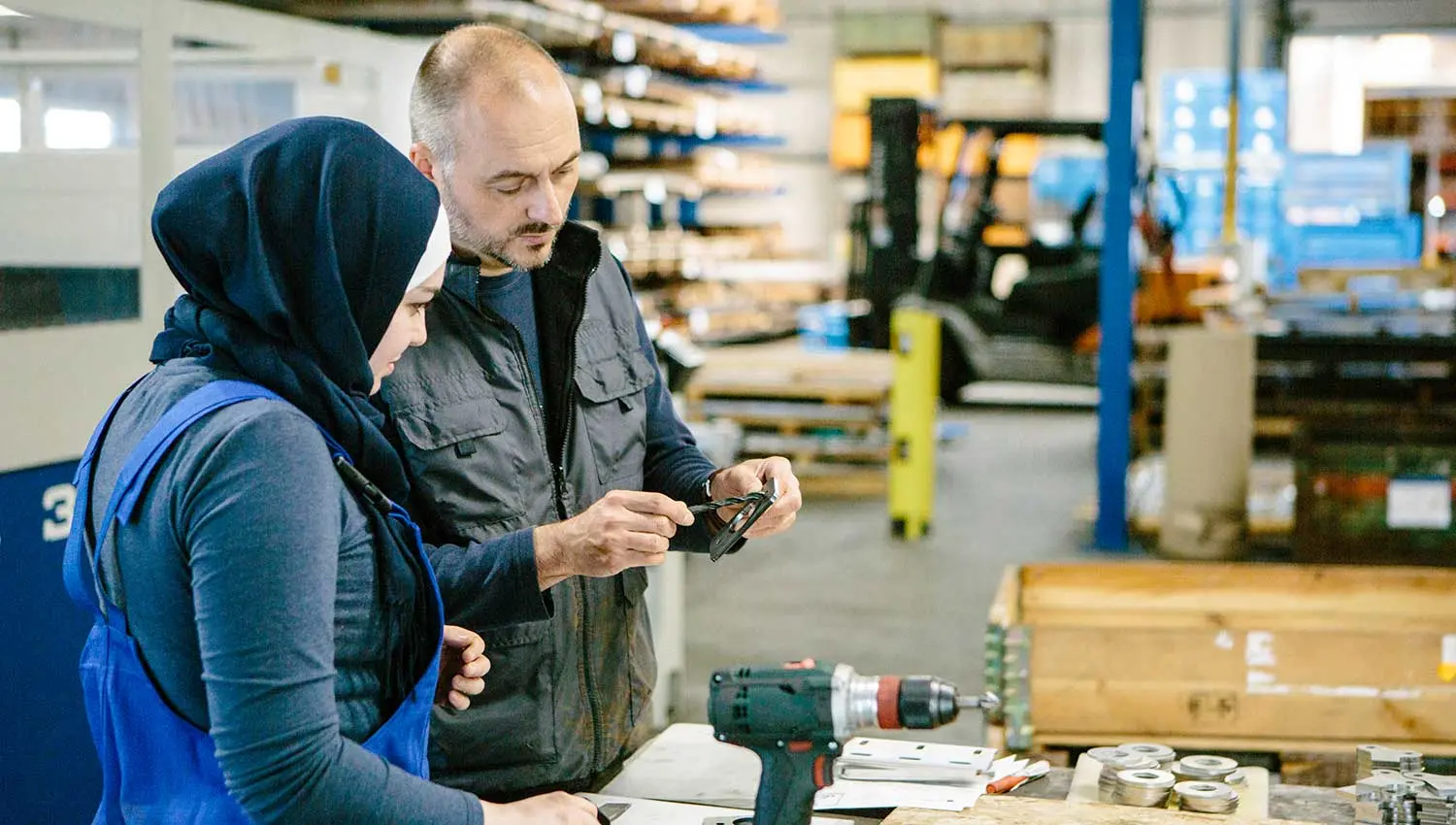Analysing the impact of integration projects: demonstrating their effects and gaining learning experiences
Those who donate money to a social project want to see that it has a positive impact. However, impact analyses are rarely used for learning processes. Using the example of integration projects involving young people, a team of ZHAW researchers shows how this can work.

By Nina Brüesch and Miryam Eser Davoli
In recent years, Swiss Solidarity has supported many projects aimed at facilitating the professional integration of young people in need. After every fundraising period, the organisation responsible for the project must provide a report to Swiss Solidarity stating what has been done and achieved in the projects. To learn more about the effectiveness of these projects and examine this using scientific methods, Swiss Solidarity asked three universities from three linguistic regions to conduct an evaluation: the University of Applied Sciences and Arts Western Switzerland (HES-SO) in Geneva, the University of Applied Sciences and Arts of Southern Switzerland (SUPSI) in Manno as well as the ZHAW School of Social Work in Zurich.
By commissioning the impact analysis, Swiss Solidarity aimed to induce a sustainable collaborative learning process at the organisations responsible for the projects. In total, ten work integration projects for young people and young adults from the three linguistic regions were selected for the evaluation. We – the researchers from the universities of applied sciences, the organisations responsible for the projects and the commissioner of the analysis Swiss Solidarity – initially determined three research questions for the evaluation in a joint workshop:
• Evaluation of the effectiveness of the projects: Do they meet the needs and expectations of the young people? In what way did they influence their professional career?
• Evaluation of the relevance of the interventions: Do they correspond to an actual need?
• Do the projects help to improve the processes of a learning organisation?
We assigned the projects to three different categories, each with their own target groups, goals and intervention time frames. The first category included projects whose interventions focus on developing basic skills prior to starting professional training. The second category comprised projects that facilitate the professional integration of young migrants. And the third category consisted of projects which aim to achieve professional integration via a qualification.
Before and after
To answer the research questions, we held group discussions with the programme leaders and conducted interviews with three to five young people per project. The aim of the interviews was to determine the living situations of these young people before and after the project, to find out which experiences they gained during the project and to discover how they assessed their development process. In addition, we analysed quantitative data on the course their participation in the programmes took, which was collected and provided to us by the organisations responsible for the project.
The results showed that none of the young participants were living in an environment that supported them in embarking on a training programme. Most lacked self-confidence and knowledge of the behaviours, rules and customs that would be expected in the setting of a vocational training course. They blamed themselves for missed opportunities. In instances in which the young people were facing multiple problems, such as histories of addiction, difficult family and financial circumstances or mental health issues, their situation was particularly precarious. Young refugees were additionally confronted with linguistic challenges and gaps in their education.
Support from social education workers
As our evaluation encompassed three different language regions, we were able to show how diverse the offers for vocational training are within Switzerland and which structural factors, such as the number of available apprenticeships and education dropout rates, lead to inequality. We also determined which conditions helped to individually adjust the offers in the programmes themselves. These also include the provision of support from social education workers, which helps to develop a good working relationship and thanks to which the participants feel that they are taken seriously and understood.
A further success factor is continued contact between the participants and the programme or individual collaborators after the programme finishes. This supports them in their further development process. However, such long-term support often necessitates a voluntary commitment on the part of the project-executing organisations. For the future, it would need to be considered how to integrate such a quality factor in the support criteria from the beginning.
Recommendation: involve donors
The comparative approach adopted for the evaluation was also a learning process for Swiss Solidarity, which has gained in-depth insights into the individual programmes and their approaches and working methods for the first time. This was also true for the individual organisations responsible for the projects, which up to then had only had rudimentary knowledge of the other projects supported by Swiss Solidarity.
At a national level, it became apparent how the different existing offers complement each other and where which target groups are addressed. An important conclusion drawn by all participants in this evaluation is that the exchange of information and peer consulting on good practice should be continued. In addition, the researchers recommend that donors and public authorities also be involved in order to develop a medium-term strategy for public-private financing.
Evaluations can improve social sustainability
A group of researchers led by Laurent Wicht (University of Applied Sciences and Arts Western Switzerland, Geneva) and Miryam Eser Davolio (ZHAW School of Social Work) and commissioned by Swiss Solidarity evaluated projects aimed at young people and young adults funded by Swiss Solidarity. An evaluation can assess the quality of the projects and the consistency of the follow-up work conducted after their completion.
Would you like to have your project evaluated? We would be happy to advise you.
Consulting services and offers